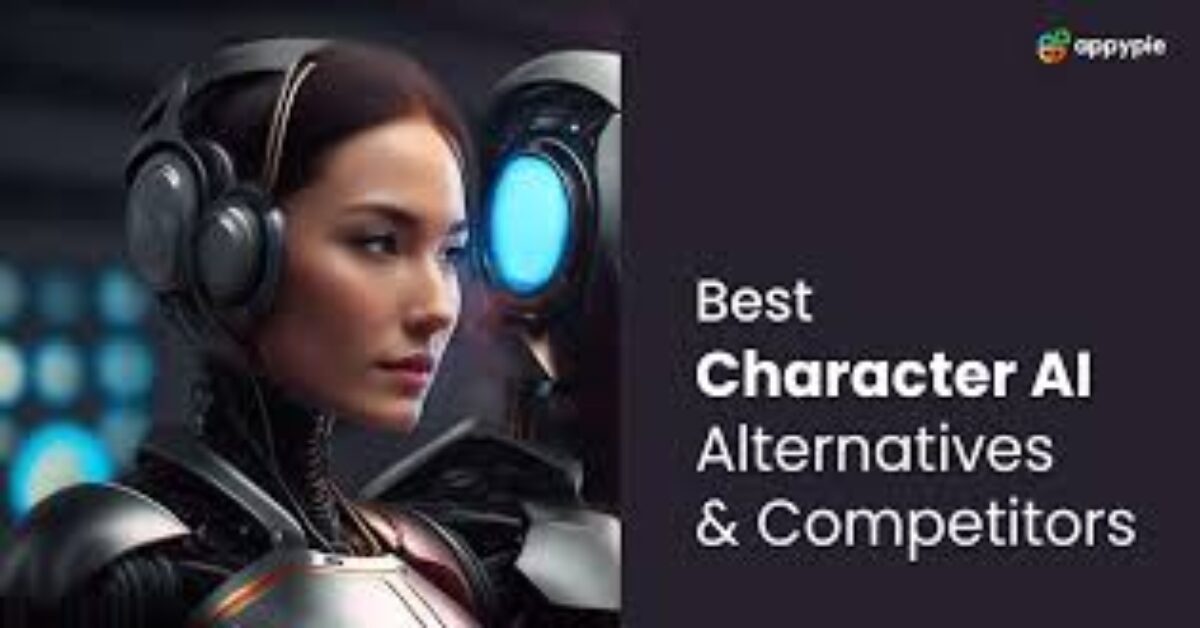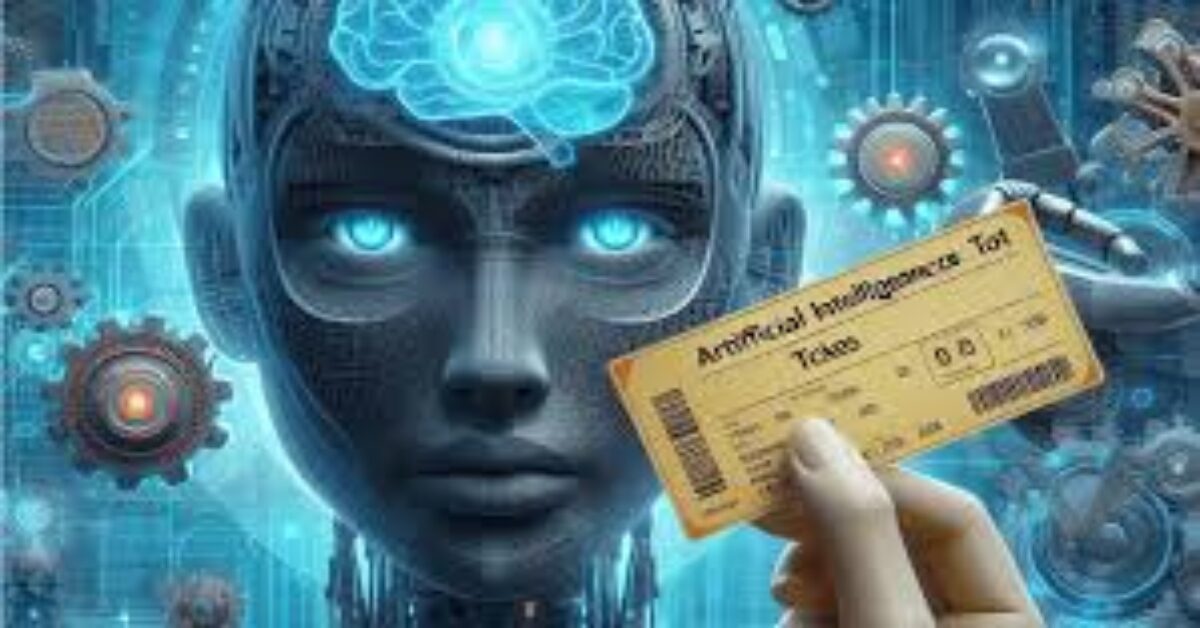Blog
Discover the Next Level: Character AI Alternative in 2024

Introduction to Character AI Alternative
Character AI Alternative is an intriguing fusion of creativity and technology. It’s like having a virtual assistant to help you craft characters for stories, games, or even marketing campaigns. Let’s explore how this innovative tool is reshaping the creative landscape.
List of Best 20 Character AI Alternative Tools to Use
- Botify AI
- ChatFAI
- Replika
- NovelAI
- TavernAI
- FreedomGPT
- Chai
- Kuki
- Clever bot
- Inworld
- LivePerson
- Kajiwoto
- EVA
- PygmalionAI
- Jasper Chat
- Harpy AI
- AI Dungeon
- Charstar AI
- Chatbot
- Cleverbot
Benefits of Character AI Alternative
Efficiency and Time-Saving
Imagine spending less time on character development and more time on storytelling. That’s the beauty of Character AI Alternative. It streamlines the creative process, allowing creators to focus their energy where it matters most.
Diverse Character Creation

With Character AI Alternative, you’re not limited to a handful of character archetypes. You can create characters from diverse backgrounds, with unique personalities and traits. It’s a game-changer for storytellers looking to break free from conventional molds.
Diverse character creation is a pivotal aspect of storytelling, offering writers the opportunity to populate their narratives with a rich tapestry of personalities, backgrounds, and experiences. In crafting diverse characters, authors can reflect the complexity and diversity of the real world, fostering empathy and understanding among readers
. Each character brings a unique perspective to the story, adding depth and authenticity to the narrative. From different cultural backgrounds to varying gender identities and sexual orientations, diverse characters allow readers to see themselves represented in literature, fostering a sense of belonging and validation. Furthermore, diverse character creation challenges stereotypes and promotes inclusivity, encouraging readers to question societal norms and embrace diversity.
By celebrating the uniqueness of each character, writers can create compelling and relatable stories that resonate with audiences from all walks of life. Ultimately, diverse character creation is not just about representation; it’s about empowering marginalized voices, fostering empathy, and promoting social change through the power of storytelling.
Consistency in Character Development
Keeping track of character details can be challenging, especially in long-running narratives. Character AI Alternative helps maintain consistency in character traits and story arcs, ensuring a cohesive and engaging experience for your audience.
How Character AI Alternatives Work
Machine Learning Algorithms
Character AI Alternative harnesses the power of machine learning to analyze character data and generate realistic outputs. It’s like having a virtual brainstorming partner who learns and adapts alongside you.
Natural Language Processing (NLP) Techniques
Thanks to Natural Language Processing, Character AI Alternative can understand and generate human-like text. It’s like having a conversation with a fellow creator, bouncing ideas off each other to refine your characters.
Data Training and Generation
To create compelling characters, Character AI Alternative needs access to extensive datasets. These datasets provide the AI with the knowledge it needs to craft believable and nuanced characters, tailored to your specific needs.
Applications of Character AI Alternatives
Writing and Storytelling

For writers, Character AI Alternative is a valuable tool for brainstorming character ideas, generating dialogue, and fleshing out plot points. It’s like having a writing partner who’s always full of fresh ideas.
Incorporating character AI alternatives into the realm of writing and storytelling marks a profound shift in creative dynamics.
These innovative tools serve as collaborative partners, aiding writers in character creation, dialogue crafting, and plot development. Imagine having a virtual co-author by your side, offering fresh perspectives and creative insights to enrich your narrative journey.
With character AI alternatives, the creative process becomes a dynamic exchange between human imagination and artificial intelligence.
These tools analyze vast datasets and draw upon sophisticated algorithms to generate characters with depth, complexity, and authenticity. As a writer, you can explore diverse character archetypes and storylines, pushing the boundaries of your creativity in ways previously unimagined.
Moreover, character AI alternatives inject a sense of spontaneity and unpredictability into storytelling. AI-generated characters can react dynamically to plot twists and player choices, leading to immersive and personalized narrative experiences.
Whether you’re writing a novel, screenplay, or interactive story, these tools provide invaluable support in shaping compelling narratives that resonate with audiences.
However, integrating character AI alternatives into the writing process also raises questions about artistic ownership and ethical considerations. As creators, it’s essential to maintain control over the creative vision while leveraging AI technology responsibly. Striking a balance between human intuition and AI assistance ensures that the final work remains true to your artistic vision.
In essence, writing and storytelling by character AI alternatives represent a harmonious fusion of human creativity and technological innovation. By embracing these tools, writers can unlock new dimensions of storytelling, forging deeper connections with readers and exploring the boundless possibilities of the narrative landscape.
Game Development

In the world of game development, Character AI Alternative is a game-changer. It allows developers to create lifelike NPCs that enhance gameplay and immersion, leading to more immersive gaming experiences.
Game development by character AI introduces a fascinating realm of possibilities within the gaming industry. This innovative approach utilizes artificial intelligence to generate lifelike non-player characters (NPCs) with unique personalities, behaviors, and traits.
Character AI enhances the gaming experience by immersing players in dynamic and engaging narratives, where interactions with AI-controlled characters feel organic and realistic.
One of the key benefits of game development by character AI is its ability to streamline the game creation process. Developers can leverage AI algorithms to generate a diverse cast of NPCs quickly, freeing up time and resources to focus on other aspects of game design.
Moreover, character AI adds depth and complexity to game worlds, creating a more immersive experience for players. NPCs with believable personalities and motivations can react dynamically to player actions, leading to unpredictable and compelling gameplay scenarios.
Additionally, character AI enables developers to explore new storytelling possibilities. By crafting NPCs with rich backstories and complex relationships, game narratives become more engaging and emotionally resonant.
However, game development by character AI also presents challenges. Ensuring that AI-generated characters behave realistically and authentically requires careful design and testing. Balancing player agency with AI-controlled character behaviors can be complex, requiring iterative refinement and optimization.
Overall, game development by character AI represents an exciting frontier in the gaming industry, offering developers new tools and techniques to create immersive and captivating gaming experiences.
Marketing and Advertising
Character AI Alternative isn’t just for storytellers and game developers—it’s also a powerful tool for marketers. Brands can use AI-generated characters to create memorable advertising campaigns that resonate with consumers on a deeper level.
Challenges and Limitations
Ethical Considerations
As with any technology, Character AI Alternative raises ethical questions about ownership, authenticity, and representation. It’s important for creators to navigate these issues responsibly, ensuring that their use of AI aligns with ethical guidelines.
Quality and Authenticity Concerns
While Character AI Alternative offers many benefits, there are concerns about the quality and authenticity of AI-generated characters. Creators must strive to maintain high standards, refining AI outputs to ensure they meet audience expectations.
Adaptability and Customization
Character AI Alternative may struggle to accommodate unconventional character concepts or unique storytelling styles. Creators may need to supplement AI-generated content with their own creativity, finding a balance between automation and manual intervention.
Future Trends and Developments
Integration with Virtual Reality (VR) and Augmented Reality (AR)
Looking ahead, Character AI Alternative is poised to play a significant role in the evolution of virtual and augmented reality. By integrating AI-generated characters into immersive experiences, creators can blur the lines between fiction and reality, providing audiences with unforgettable storytelling adventures.
Enhanced Personalization Features
Personalization is key to the future of Character AI Alternative. By leveraging machine learning and user feedback, these tools can adapt characters to individual preferences, providing tailored experiences that resonate with diverse audiences.
Collaborative Creation Platforms
Collaboration will play a crucial role in the future of Character AI Alternative. By creating collaborative platforms, creators can work together with AI systems, fostering a dynamic creative ecosystem where ideas can flourish and evolve organically.
Technology
“Power BI vs Tableau: Which Reigns is Best or Supreme in 2024?”

Introduction to Power BI vs Tableau:
In the world of information visualization and analytics, Power BI vs Tableau stand out as two of the most unmistakable gadgets. Each has its qualities and lacks, catering to contrasting needs and inclines. Understanding the contrasts between Power BI and Tableau is pivotal for making an instructed choice about which contraption best suits your necessities.
Background of Power BI and Tableau:
Both Power BI and Tableau have picked up broad ubiquity over a long time, revolutionizing how businesses analyze and visualize information. Control BI, created by Microsoft, entered the showcase in 2013, whereas Scene, established in 2003, has been an overwhelming player for longer. In spite of their varying timelines, both apparatuses have advanced altogether, joining progressed highlights and functionalities.
Purpose and Functionality:
Power BI and Tableau serve the common reason for changing crude information into noteworthy experiences. In any case, they utilize unmistakable approaches to accomplish this objective. Control BI, profoundly coordinates with the Microsoft environment and offers a consistent network with Exceed expectations, SQL Server, and other Microsoft items. On the other hand, Scene gloats a more instinctive and user-friendly interface, making it a favorite among information visualization devotees.
Cost and Licensing Models:
Taken contemplations play a noteworthy part in the decision-making handle for businesses assessing Control BI vs. Scene. Control BI offers a run of estimating alternatives, counting a free form with restricted highlights and subscription-based plans for people and endeavors. The scene, in the meantime, takes after a layered estimating structure, with diverse estimating levels based on the highlights and functionalities required.
Data Connectivity and Integration Capabilities:
The capacity to interface to and coordinated with different information sources is a vital angle of any information analytics apparatus. Control BI and Scene back a wide run of information connectors, empowering clients to get to information from different sources such as databases, cloud administrations, and spreadsheets. In any case, Control BI’s local integration with Microsoft items gives it a competitive edge for organizations intensely contributed in the Microsoft environment.
Visualization Capabilities and Customization Options:
The adequacy of an information visualization device pivots on its capacity to make compelling and quick visualizations. Both Control BI and Scene offer plenty of visualization choices, counting charts, charts, maps, and dashboards. Whereas Control BI gives a strong set of visualization devices, Scene exceeds expectations in terms of adaptability and customization, permitting clients to make exceedingly intuitive and energetic visualizations.
Learning Curve and User Experience:
Blog
Artificial Intelligence Ticketing: Best Your Shortcut to Smarter Operations in 2024
Blog
Quantum Artificial Intelligence Elon Musk in 2024: Pioneering the Future.

Quantum Artificial Intelligence Elon Musk
In cutting-edge technology, the fusion of quantum mechanics and artificial intelligence (AI) stands at the forefront of innovation. Quantum Artificial Intelligence Elon Musk represents a paradigm shift in computing capabilities, with the potential to revolutionize industries ranging from healthcare to finance. At the helm of this transformative journey is the visionary entrepreneur, Elon Musk.
Introduction to Quantum Artificial Intelligence (QAI)
Quantum Artificial Intelligence harnesses the principles of quantum mechanics to perform complex computational tasks beyond classical computers’ reach. Unlike classical bits, which can only exist in a state of 0 or 1, quantum bits or qubits can exist in multiple states simultaneously, enabling exponential leaps in processing power.
Understanding Quantum Computing Artificial Intelligence

To comprehend the significance of QAI, one must grasp the fundamentals of quantum computing. Quantum computers leverage phenomena such as superposition and entanglement to perform computations at unparalleled speeds, solving problems that would take classical computers eons to crack.
Applications of Quantum Computing Artificial Intelligence
The applications of quantum computing Artificial Intelligence span a myriad of fields, including cryptography, drug discovery, and optimization. Quantum cryptography ensures secure communication channels, while quantum algorithms expedite the discovery of life-saving drugs and streamline logistical operations.
Challenges in Quantum Computing Artificial Intelligence
Despite its immense potential, quantum computing faces formidable challenges such as error correction, scalability, and quantum decoherence. Overcoming these hurdles is essential for realizing the full capabilities of QAI.
Elon Musk’s Interest in Quantum AI
Quantum Artificial Intelligence Elon Musk, the maverick entrepreneur behind Tesla, SpaceX, and Neuralink, has long been vocal about the potential risks and rewards of artificial intelligence. His foray into quantum AI underscores his commitment to pushing the boundaries of technological innovation.
Tesla’s Potential Integration with Quantum AI
Tesla’s pursuit of autonomous driving technology could benefit immensely from the integration of quantum AI. The intricate decision-making processes involved in self-driving cars could be optimized using quantum algorithms, enhancing safety and efficiency on the roads.
SpaceX and Quantum AI
SpaceX, Musk’s aerospace venture, could leverage Quantum Artificial Intelligence Elon Musk to revolutionize space exploration. From trajectory optimization to data analysis, quantum algorithms could bolster the capabilities of SpaceX missions, propelling humanity further into the cosmos.
Neuralink and Quantum AI
Neuralink, Musk’s ambitious venture to merge the human brain with AI, presents intriguing possibilities for synergy with quantum computing. The marriage of Quantum Artificial Intelligence Elon Musk and brain-computer interfaces could unlock new frontiers in human cognition and machine learning.
OpenAi and Quautum AI Research

As the founder of OpenAI, Musk has championed the cause of AI research and development. Collaborations between OpenAI and quantum computing experts could pave the way for groundbreaking advancements in AI capabilities.
Implications for the Future
The advent of Quantum Artificial Intelligence Elon Musk heralds a new era of innovation and disruption. From personalized medicine to climate modeling, Quantum Artificial Intelligence has the potential to address some of humanity’s most pressing challenges while raising ethical questions about its implications.
Conclusion
In conclusion, Quantum Artificial Intelligence Elon Musk underscores his visionary approach to technological advancement. By harnessing the power of quantum computing, Musk aims to push the boundaries of AI capabilities and propel humanity into a future limited only by imagination.
Unique FAQs
How does quantum AI differ from traditional AI?
- Quantum AI leverages the principles of quantum mechanics to perform computations at exponential speeds, whereas traditional AI relies on classical computing architectures.
What are the main challenges facing quantum computing?
- Error correction, scalability, and quantum decoherence are among the primary challenges impeding the widespread adoption of quantum computing.
How could quantum AI impact everyday life?
- Quantum AI could revolutionize industries ranging from healthcare to finance, enabling breakthroughs in drug discovery, financial modeling, and personalized medicine.
What role does Quantum Artificial Intelligence Elon Musk?
Elon Musk’s ventures, including Tesla, SpaceX, and Neuralink, are at the forefront of exploring the potential applications of quantum AI in various domains.
Are there any ethical concerns surrounding quantum AI?
- Ethical considerations, such as data privacy, algorithm bias, and the potential for job displacement, must be carefully addressed as quantum AI technologies continue to evolve.
Exploring Quantum Artificial Intelligence Elon Musk’s Vision

The Intriguing Intersection of Quantum Mechanics and Artificial Intelligence
Quantum Artificial Intelligence (QAI) stands as a testament to human ingenuity, merging the abstract principles of quantum mechanics with the practical applications of artificial intelligence. Traditional computing, based on classical physics, has its limitations, particularly when faced with immensely complex problems. Quantum computing, however, offers a tantalizing glimpse into a realm where computation occurs at the quantum level, opening doors to unprecedented computational power and efficiency.
Elucidating the Enigma: Quantum Computing Artificial Intelligence Principles
At the heart of quantum computing Artificial Intelligence lies a set of principles that defy conventional understanding. Concepts such as superposition and entanglement form the bedrock upon which quantum algorithms operate. Superposition allows qubits to exist in multiple states simultaneously, while entanglement links the states of qubits, enabling instantaneous correlation across vast distances. These phenomena, seemingly paradoxical, underpin the extraordinary capabilities of quantum computers.
Unveiling Quantum Computing’s Multifaceted Applications
The applications of quantum computing Artificial Intelligence extend far beyond theoretical speculation, manifesting in tangible advancements across various industries. Quantum cryptography, for instance, leverages the inherent security of quantum systems to safeguard sensitive information against prying eyes. Similarly, quantum algorithms hold promise in accelerating the discovery of novel pharmaceutical compounds, revolutionizing drug development pipelines, and improving patient outcomes.
Navigating the Treacherous Terrain: Challenges in Quantum Computing Artificial Intelligence
Despite its immense potential, the path to practical quantum computing is fraught with challenges. Error correction mechanisms are paramount, as quantum systems are inherently susceptible to noise and interference. Moreover, scalability remains a pressing concern, with current quantum hardware struggling to accommodate the demands of large-scale computations. Quantum decoherence, the bane of quantum systems, poses yet another obstacle, threatening to unravel delicate quantum states before useful computations can be completed.
Elon Musk: A Trailblazer in the Technological Landscape
Elon Musk’s endeavors transcend the boundaries of conventional industry, epitomizing the spirit of innovation and disruption. From electric vehicles to space exploration, Musk’s ventures have redefined what is possible in their respective domains. Central to Musk’s ethos is a steadfast commitment to advancing technology for the betterment of humanity, a principle that extends to the realm of artificial intelligence and quantum computing.
Tesla: Spearheading the Automotive Revolution with Quantum AI
Tesla, under Musk’s visionary leadership, has emerged as a pioneer in the realm of autonomous driving technology. The integration of Quantum Artificial Intelligence holds immense promise for Tesla’s self-driving endeavors, enabling real-time decision-making and adaptive learning capabilities that far surpass the capabilities of traditional AI systems. By harnessing the power of quantum computing, Tesla aims to revolutionize transportation and redefine the concept of mobility.
SpaceX: Pushing the Boundaries of Space Exploration with Quantum AI
SpaceX, Musk’s audacious aerospace venture, is at the forefront of humanity’s quest to explore the cosmos. Quantum AI, with its unparalleled computational prowess, could prove instrumental in optimizing spacecraft trajectories, analyzing vast datasets from space probes, and enabling autonomous navigation systems for future Mars missions. By embracing quantum computing, SpaceX endeavors to unlock the mysteries of the universe and pave the way for interplanetary exploration.
Neuralink: Bridging the Divide Between Mind and Machine with Quantum Artificial Intelligence Elon Musk
Neuralink, Elon Musk’s enigmatic brain-computer interface startup, seeks to merge the human brain with artificial intelligence. The potential synergy between Neuralink and Quantum AI is tantalizing, offering unprecedented insights into the inner workings of the mind and the potential for symbiotic relationships between humans and machines. By harnessing quantum computing power, Neuralink aims to unlock new frontiers in cognitive enhancement and human-machine interaction.
OpenAI: Charting the Course for Ethical AI Development with Quantum Computing
As the founder of OpenAI, Elon Musk has been a vocal advocate for responsible AI development. OpenAI’s collaborations with quantum computing experts signify a concerted effort to ensure that the benefits of Quantum Artificial Intelligence are equitably distributed and ethically governed. By fostering interdisciplinary research and promoting transparency in AI development, OpenAI aims to shape a future where quantum computing serves as a force for good in society.
Conclusion: Navigating the Quantum Frontier with Elon Musk
In conclusion, Quantum Artificial Intelligence Elon Musk represents a convergence of scientific inquiry and technological innovation, with the potential to reshape the fabric of our reality. Elon Musk’s visionary leadership and unwavering commitment to pushing the boundaries of human achievement have positioned him at the forefront of this quantum revolution. As we embark on this journey into the unknown, guided by the principles of curiosity and exploration, we stand poised to unlock new realms of possibility and usher in a future limited only by the bounds of our imagination.
Related to: Unveiling the Magic Why is AutoBlogging.ai the best AI writing tool in 2024?







